ARTICLE AD
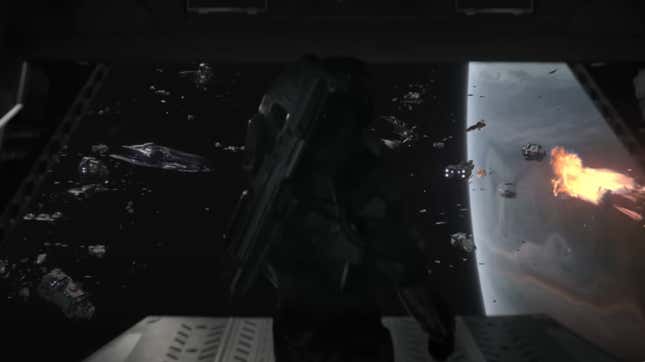
Screenshot: Paramount+
Paramount+’s Halo show has not yet covered the bulk of the Halo video games in its adaptive process—which means for Master Chief and his fellow Spartans, and the rest of humanity, things are going to get a lot, lot worse before they get better. Part of that will see the show take a big step closer to the video games when season two begins this week, as it tackles a huge piece of Halo lore: the Fall of Reach.
It was first explored in the Eric Nylund novel of the same name—released just weeks before Halo: Combat Evolved launched in 2001—and then extrapolated upon further in 2010's Halo: Reach, the final game in the franchise to be developed by Halo creators Bungie. The Fall of Reach marks a huge battle in the early days of humanity’s conflict against the alien forces of the Covenant. Striking deep into human territory, the attack—and ultimate defeat—set the stage for the dire stakes of the Human-Covenant War, and kickstarted the original story of Microsoft’s legendary shooter series in earnest.
Given that the Halo TV show is already operating in its own take on the Halo timeline, we don’t really know just how the show is going to approach the Fall of Reach—we just know it’s a major anchor point for its sophomore season. So before things kick off, here’s what you need to know about the last two times we’ve seen this battle rage on in Halo fiction.
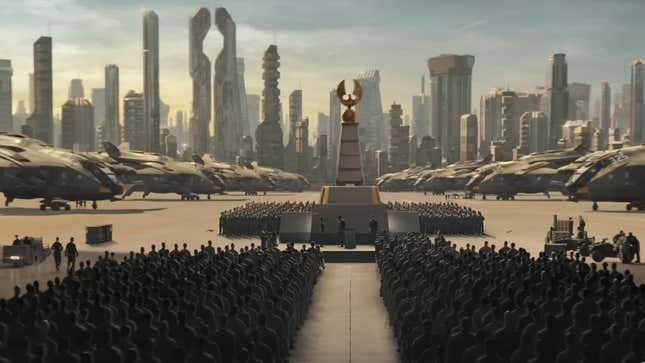
Screenshot: Paramount
Reach is the name given to the planet Epsilon Eridani II, one of several worlds in a stellar system 10.5 light years from Earth. One of the Inner Colonies of Earth’s unified government, Reach was considered a sister planet to Earth itself, both for its relative proximity to humanity’s crucible and for its eventual establishment as not just a major colony world—one of the most populated worlds in the colonies—but also the command headquarters of Earth’s military, the United Nations Space Command.
As it is in the Halo show, where it appeared during season one, Reach was home to not just the UNSC’s military command, as well as vital shipyards developing the fleet’s capital ships, but also home to two of its intelligence agency ONI’s biggest projects: the Spartan-II program and the accompanying MJLONIR armor project. It saw 75 children from across Earth’s colonies abducted and trained to become an elite class of genetically enhanced super soldiers designed to fight humanity’s perceived greatest threat—growing insurrections in the outer colony worlds, seeking freedom from Earth’s direct rule. One such child, of course, was John, designated 117, who would go on to become the legendary Master Chief.
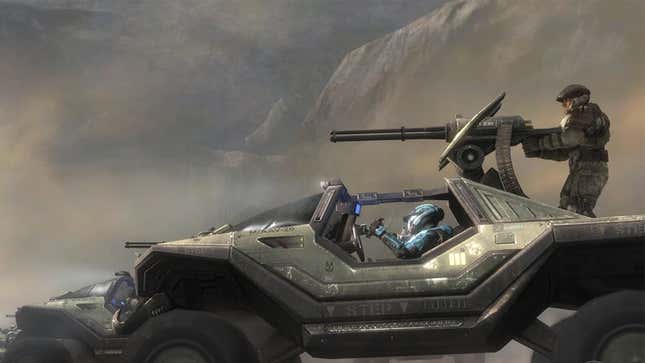
Screenshot: Microsoft
Although the original novel depicted Reach’s invasion as taking place in a very short period of time, Halo: Reach reframed the Covenant’s discovery, invasion, and eventual destruction of Reach as taking place over the course of a month. The Covenant’s infiltration of Reach began slowly and secretively—with its fleet undetected by the UNSC, small groups of advance scout teams targeted and disrupted communications across the world, preparing it for wider invasion.
Initially believed by the UNSC as potential insurrectionist activity on the world, the initial discovery of a Covenant presence on Reach during the battle of Visegrád, a town home to a major comms relay, saw the UNSC declare Winter Contingency in late June 2552. The failsafe backup plan was designed to mobilize military forces upon discovery that the Covenant had become aware of one of humanity’s colonies.
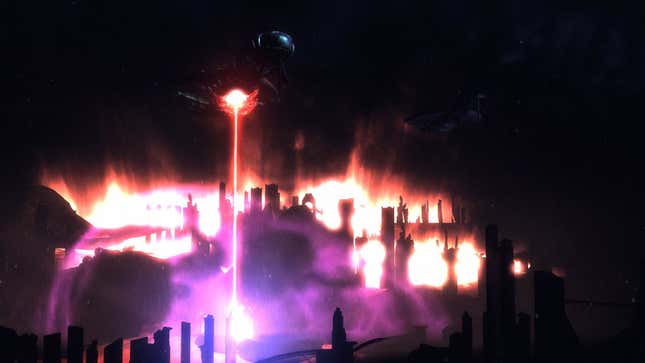
Screenshot: Microsoft
Using cloaking technology, the Covenant quickly established surreptitious landing zones across Reach’s surface, as the UNSC scrambled to try and ascertain the size of their forces. The discovery of a major hidden landing zone in the Viery territory uncovered a Covenant supercarrier cloaked in orbit around the planet, and although the ship was ultimately destroyed by the Spartan members of Noble Team (more on them later), it only heralded the arrival of a second, larger Covenant fleet. Just three weeks after they were initially discovered on Reach, the Covenant’s official invasion was underway.
Although the UNSC scored early key wins in defending the planet, the arrival of the primary Covenant fleet—and with over half of the scrambled UNSC attempting to return to Reach to help defend it still on the way—saw the conflict rapidly turn in the invader’s favor. The Covenant targeted key military and civilian strongholds, staging massive ground assaults before pulling out to have vessels from the fleet begin targeted “glassing” strikes—orbital bombardments with the Covenant’s advanced plasma weaponry, killing anything in its path and then some, superheating the land until it was transformed into an uninhabitable, obsidian-esque wasteland.
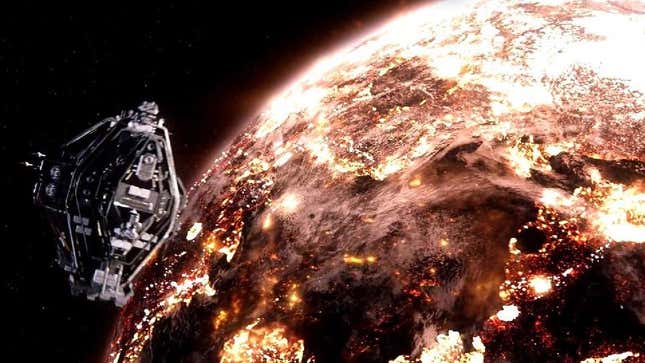
Screenshot: Microsoft
The beginning of Reach’s glassing heralded the end of the planet as the UNSC knew it. Remaining military forces scrambled to evacuate civilians off world—only to be largely picked off as even more Covenant vessels entered the Epsilon Eridani system thanks to the weakening of the UNSC’s defense systems.
The UNSC frigate Pillar of Autumn—already carrying an evacuated Master Chief, one of the few surviving Spartans after the conflict—was tasked with coming to what remained of the planet’s surface by the founder of the Spartan-II program, Dr. Catherine Halsey (played in the games by Jen Taylor, and the Halo TV series by Natascha McElhone), in order to recover a copy of Halsey’s AI construct Cortana carrying vital information that could turn the tide of the war. Pillar of Autumn managed to successfully evacuate Cortana and enter FTL away from Reach.
Just over a month after their presence was revealed on Reach, on August 30, 2552, the Covenant Fleet began bombarding the entire surface of the world as the surviving UNSC fleet retreated from the system, turning it almost entirely to glass.
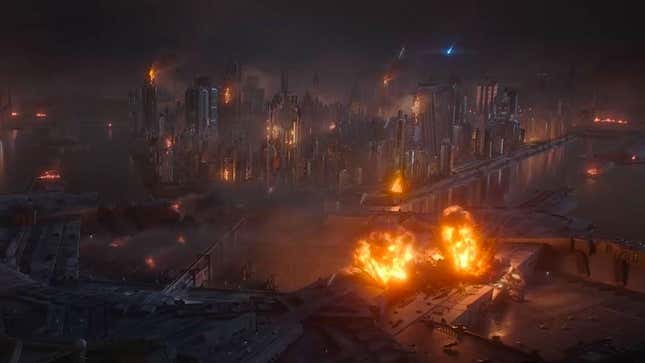
Screenshot: Paramount
The near-destruction of Reach—and its rendering uninhabitable for decades—was a devastating blow to humanity in the early phases of its conflict with the Covenant. The loss of its shipyards and military command structure represented a dire blow to the UNSC’s capabilities. Millions of people died during the invasion, and the Covenant managed to successfully repel intervention from beyond the world by the UNSC fleet, so the cost in morale was unlike anything seen in the war so far. It was also believed that the vast majority of Spartans were killed in the attempted defense of their adoptive homeworld.
With Reach’s fall, the Covenant were essentially already on humanity’s doorstep, primed to launch an assault on Earth—and seemingly almost inevitably doom humankind to extinction. But it’s also the crucible of Halo’s story: without Master Chief, his AI partner Cortana, and the Pillar of Autumn being whisked away from Reach, the Halo arrays would never have been discovered, giving humanity a fighting chance against the Covenant invasion—and opening their eyes to even greater threats beyond this alien collective.
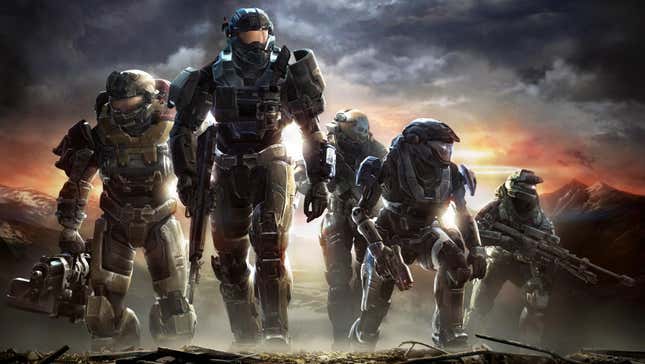
Screenshot: Microsoft
Although they didn’t appear in the original telling of the Fall of Reach as seen in the 2001, Noble Team—a squad of next-generation Spartan-III supersoldiers, the successors to the Spartan II program—were the primary protagonists of the version of the Fall of Reach depicted in Halo: Reach. There were six members of the team—Carter, Kat, Jun, Emile, Jorge, and Noble Six, Reach’s customizable player character—and spoiler, but unsurprisingly so given everything you’ve read here so far, all but one of them perishes over the course of the game.
The events told in Halo: Reach contradict the version of the Fall depicted in The Fall of Reach in multiple ways, and it’s likely further still that Halo season two will contradict Halo: Reach, given its already operating in its own timeline. We don’t currently know if Noble Team will have any role in the show’s version of events, but considering we’re likely going to see Reach’s downfall from Master Chief’s primary perspective again, his path rarely aligned with Noble Team’s during Halo: Reach outside of a brief cameo connection during the climax of the game, so it’s not like they’re entirely necessary to a version of these events the show wants to tell.
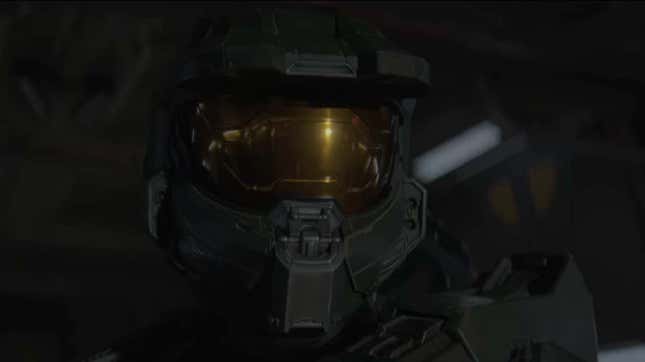
Screenshot: Paramount
Well, to Halo: Combat Evolved, presumably. And the, uh, Halo.
Although once again, the show is operating in its own version of Halo continuity, it wouldn’t be too surprising to see it operate on similar ground as the already established game continuity. The original Halo game opens with the Pillar of Autumn having made a random jump away from the devastation at Reach... and right into the path of the titular ringworld, ready to kick off the saga as we really know it. Whether the TV series does that—or perhaps even stretches things out in such a way that that becomes something to deal with in a potential third season—remains to be seen. But given that the show has got a lot of work to do to win over gamers and audiences unconvinced by the choices made in season one, tackling one of the most famous bits of Halo lore and then diving right into the classic games might be a smart option.
We’ll begin finding out just how it approaches everything when Halo season two begins streaming on Paramount+ February 8.

 1 year ago
44
1 year ago
44 

